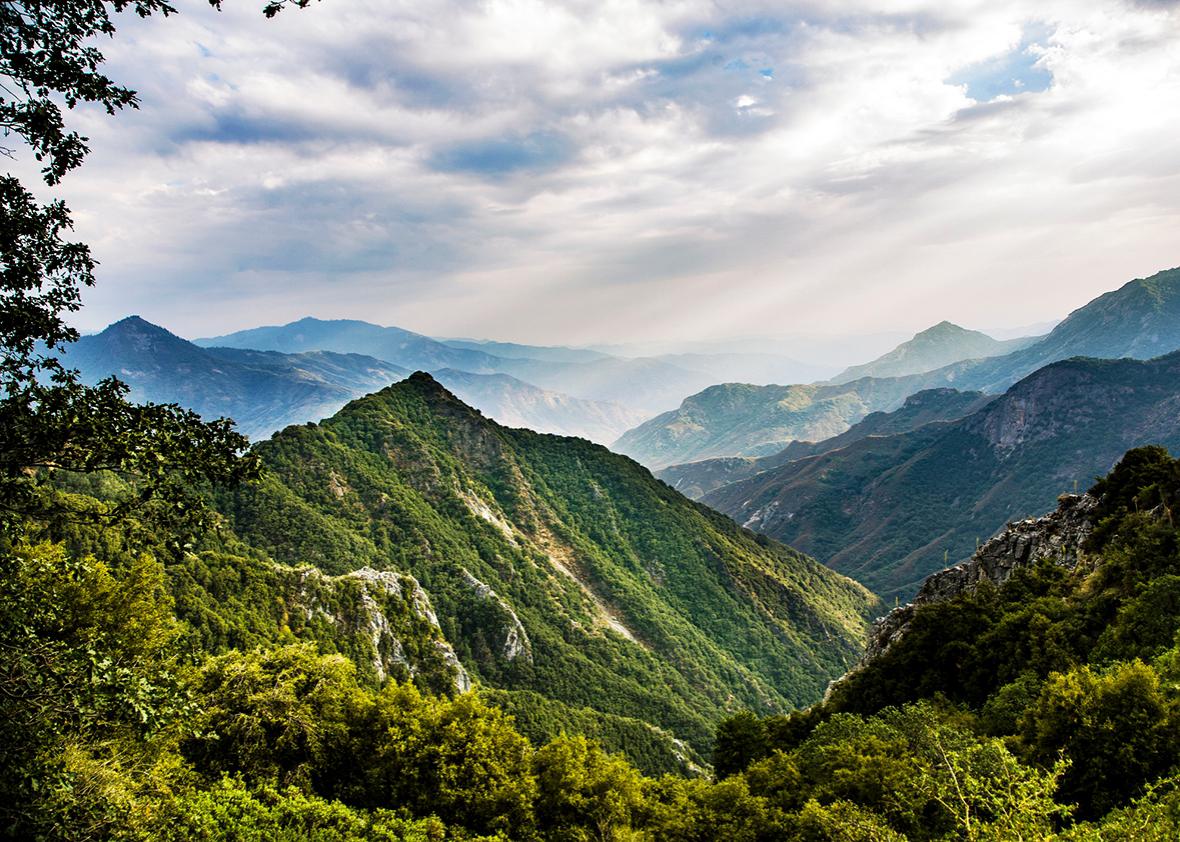Donald Trump is notorious for taking his message directly to the people. This weekend, after the National Park Service became the unlikely protagonist in the anti-Trump resistance, the recently retired director of NPS adopted Trump’s strategy and penned a strongly worded statement about the integrity of accurate communication on the Association of National Park Rangers’ Facebook page.
Jon Jarvis—who served from 2009 to Jan. 3, 2017—blasted the Trump administration for what he saw as an edict that the NPS not talk about national policy. Donald Trump himself had called the new, acting director of NPS on the morning after the inauguration to admonish him for tweets that the president perceived as critical of him the day before. The NPS had deleted the tweets in question soon after they were issued and before Trump’s intervention, and it had also issued a temporary ban on communications that was also lifted within less than 24 hours. Many were shocked that Trump would personally involve himself in the debate.
Before news broke of Trump’s personal call, other National Parks’ official Twitter accounts started issuing seemingly rebellious tweets—or at least rebellious when considering the fact that our commander-in-chief doesn’t believe climate change is real. First the Badlands National Park wrote about how carbon emissions are causing rising temperatures and about ocean acidification, and later the Golden Gate National Park tweeted about record-breaking global temperatures. Park officials attributed the Badlands tweets to a former employee who was no longer authorized to use the account, and the tweets quickly disappeared. While there is no solid evidence that this was the result of censorship from above, it still angered those already anxious about such a fate.
Jarvis’ public statement was published by the Association of National Park Rangers, a professional association for NPS employees and volunteers that is unaffiliated with the NPS. It reads:
I have been watching the Trump administration trying unsuccessfully to suppress the National Park Service with a mix of pride and amusement. The NPS is the steward of America’s most important places and the narrator of our most powerful stories, told authentically, accurately, and built upon scientific and scholarly research. The Park Ranger is a trusted interpreter of our complex natural and cultural history and a voice that cannot not be suppressed. Edicts from on-high have directed the NPS to not talk about “national policy,” but permission is granted to use social media for visitor center hours and safety. The ridiculousness of such a directive was immediately resisted and I am not the least bit surprised. So at Martin Luther King Jr. National Historic Site in Atlanta should we not talk about his actions to secure the rights to vote for African Americans in the south, or is that too “national policy? At Stonewall National Monument in New York City, shall we only talk about the hours you can visit the Inn or is it “national policy” to interpret the events there in 1969 that gave rise to the LGBT movement? Shall we only talk about the historic architecture of the Washington, DC home of Alice Paul and Alva Belmont or is it too “national policy” to suggest their decades of effort to secure the rights of women can be linked directly to the women’s marches in hundreds of cities last weekend? And as we scientifically monitor the rapid decline of glaciers in Glacier National Park, a clear and troubling indicator of a warming planet, shall we refrain from telling this story to the public because the administration views climate change as “national policy”? These are not “policy” issues, they are facts about our nation, it is how we learn and strive to achieve the ideals of our founding documents. To talk about these facts is core to the mission of the NPS. During the Centennial of the National Park Service, we hosted over 300 million visitors (now that is huge) to the National Parks and most came away inspired, patriotic and ready to speak on behalf of the values we hold most dear. The new Administration would be wise to figure out how to support the National Park Service, its extraordinary employees and their millions of fans.
Jarvis is right about one thing: The parks are popular. Not only did they receive 325 million visitors in 2016, but the general approval rating for the National Park Service was a whopping 75 percent when last assessed in 2015.
Which makes Jarvis’ statement all the more powerful. But it is equally effective because it breaks ranks with normal political rhetoric to defend the National Park Service’s right to facts—just plain ones, not those of the alternative variety. The examples he uses may be charged topics, but with the weight of history behind them, he makes a convincing case that some things must be said—simply because they are true. That he includes climate change in this roundup is particularly refreshing.
Jarvis may not be the director of NPS any longer, but if last week is any indication, his passion lives on in other employees. Just take it from the Theodore Roosevelt Inaugural Site in Buffalo, New York, one of NPS’s cultural sites.
